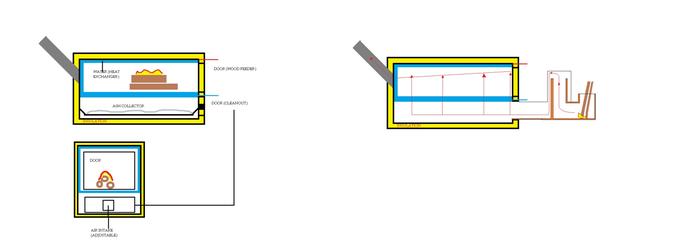


6 Ways To Keep Chickens - pdf download
will be released to subscribers in:
soon!



 3
3




Moderator, Treatment Free Beekeepers group on Facebook.
https://www.facebook.com/groups/treatmentfreebeekeepers/





 1
1




Nothing ruins a neighborhood like paved roads and water lines.
 1
1




Nothing is foolproof to a sufficiently patient fool!
I hate people who use big words just to make themselves look perspicacious.








Fish heads fish heads roly poly fish heads
 1
1




Moderator, Treatment Free Beekeepers group on Facebook.
https://www.facebook.com/groups/treatmentfreebeekeepers/





 3
3




 1
1




 2
2




Devoured by giant spiders without benefit of legal counsel isn't called "justice" where I come from!
-Amazon Women On The Moon
 3
3




Dc Stewart wrote:Two "third options" for the site operators:
2) Build me, free of charge, a comfy household bomb shelter well-stocked with vegemite and Wallaroo Wine Coolers. Place a loudspeaker in my house, over which a soothing female voice will announce "Launch imminent. You now have... *thirty* seconds to reach shelter".
Moderator, Treatment Free Beekeepers group on Facebook.
https://www.facebook.com/groups/treatmentfreebeekeepers/





 1
1




 2
2




Nick Kitchener wrote:"This is almost exactly what was done..."
They went the extra mile and stocked the shelters with marmite
Moderator, Treatment Free Beekeepers group on Facebook.
https://www.facebook.com/groups/treatmentfreebeekeepers/





 1
1




A build too cool to miss:Mike's GreenhouseA great example:Joseph's Garden
All the soil info you'll ever need:
Redhawk's excellent soil-building series









Come join me at www.peacockorchard.com
 2
2




I make a Maple Syrup instructional movie! Check it out HERE
SKIP books, get 'em while they're hot!!! Skills to Inherit Property
See me in a movie building a massive wood staircase:Low Tech Lab Movie

 1
1








Moderator, Treatment Free Beekeepers group on Facebook.
https://www.facebook.com/groups/treatmentfreebeekeepers/









Nothing is foolproof to a sufficiently patient fool!
I hate people who use big words just to make themselves look perspicacious.
 1
1




Nick Kitchener wrote:"This is almost exactly what was done..."
They went the extra mile and stocked the shelters with marmite




Aussies eat Vegemite, Kiwis and Brits eat Marmite although the Kiwi version is closer to the Australian Vegemite😋 despite being born and raised in NZ, 33 years of marriage to a Brit means that we eat English marmite in our household although they aren’t allowed to call it marmite, instead it is sold as mymate.
 1
1




Phil Stevens wrote:
Being forced to consume British Marmite is outlawed by the Geneva Convention, isn't it? Kiwi Marmite is infinitely superior. Even Vegemite is better.















 4
4




 2
2




Phil Stevens wrote:Can't put my finger on the difference. Maybe it's something like the way certain people abhor cilantro.
 3
3




Moderator, Treatment Free Beekeepers group on Facebook.
https://www.facebook.com/groups/treatmentfreebeekeepers/
















 2
2




 1
1




Moderator, Treatment Free Beekeepers group on Facebook.
https://www.facebook.com/groups/treatmentfreebeekeepers/
















 1
1




 2
2




Nothing ruins a neighborhood like paved roads and water lines.

| I agree. Here's the link: http://stoves2.com |




